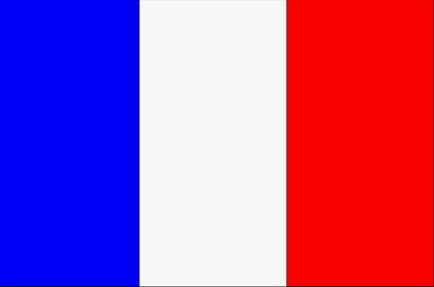





 General Directorate for External Security, subordinate to the Ministry of the Defense, is responsible for military intelligence as well as for strategic
information, electronic intelligence, and it is also responsible for the counterespionage outside the borders of the national territory.
General Directorate for External Security, subordinate to the Ministry of the Defense, is responsible for military intelligence as well as for strategic
information, electronic intelligence, and it is also responsible for the counterespionage outside the borders of the national territory.
The DGSE was formed through the the integration of the diverse agencies of French intelligence from the Second World War. The Free French forces in 1942 created the Central Bureau of Information and Action (BCRA), which in November 1943 relocated to Algiers as the General Directorate of Special Services (DGSS). On 06 November 1944 the intelligence networks of the French Resistance were integrated to the DGSS, which was redesignated the Directorate of Studies and Research (DGER). This merger incorporated a limited number of communist networks, which was not entirely satisfactory in the post-War environment. Consequently in 1946 the government of the Fourth Republic created the External Documentation and Counterespionage Service (SDECE) subordinated to the prime minister.
After abolition of the French Indochina opium monopoly in 1950, SDECE imposed centralized, covert controls over the illicit drug traffic that linked the Hmong poppy fields of Laos with the opium dens operating in Saigon. This generated profits that funded French covert operations in their Vietnam war.
With the advent of the Fifth Republic, and through 1962, the SDECE was used as a strategic intelligence service by the prime minister Michel Debre, and was particularly efficient in the struggle against the rebellion in Algeria. In 1962, following the Ben Barka affair, General De Gaulle decided to subordinate the SDECE to the minister of the defense, and the institution adapted to the military environment.
Charles De Gaulle undertook covert operations in Quebec using nationalist and separatist movements in Quebec, under the rubric of "Assistance et Cooperation Technique" or "Operation Ascot." Jacques Foccart dispatched SDECE agents to Quebec to develope and foment the growth of separatist movements. In 1968 Foccart and SDECE tried to wrest control of Nigerian oil from Britain and the US by arming and supplying secessionists in Nigeria's oil-rich Biafra region. The revolt was crushed at a cost of 500,000 lives.
The "Common Program" established by the Socialist and Communist partiess in 1972 included the demand of Communists for the dissolution of the SDECE. This measure was not supported by socialist camp, and intentions of President Fran�ois Mitterand were unknown at the time of his election in May 1981. In fact, the arrival of the Socialists marked the attempt to "civilize" the SDECE. In June 1981, Pierre Marion, a civilian who was the former Director of the Paris Airport, was named to the head of the SDECE. Perceived as a "man of the socialists" and a civilian among soldiers, Marion encountered internal opposition from SDECE.
On 04 April 1982 the SDECE was replaced by the Directorate of the External Security (DGSE).
In 2009, the DGSE had an estimated staff of approximately 5,000 employees.
